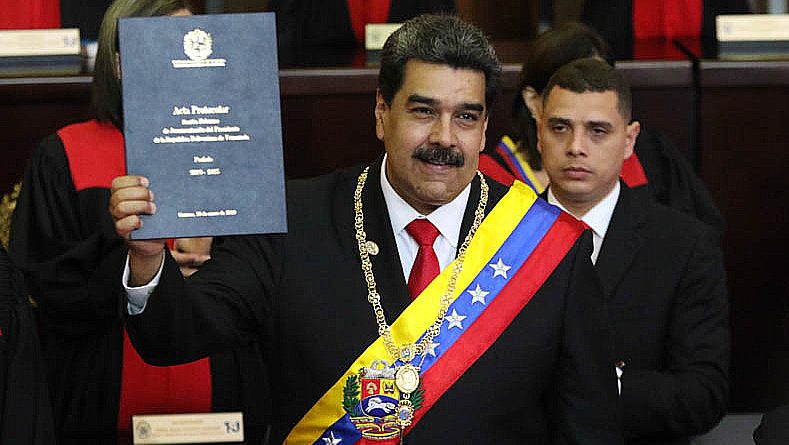FOCUS on Pariah Leaders: Nicolás Maduro
Madeline Field
Staff Writer
Nicolás Maduro, the simultaneously reviled and celebrated socialist President of Venezuela, is facing another contested vote in November’s upcoming regional elections, according to CNN. The rise and fall of Maduro’s political legitimacy parallel that of other populist leaders in Latin America, but recent events indicate that Maduro may finally achieve the legitimacy he desires.
According to the Encyclopedia Britannica, Nicolás Maduro was born in 1962 to a politically oriented, left-leaning middle-class family in Caracas. Maduro made a name for himself as a union representative for transit workers and became close with former dictator Hugo Chavez while campaigning for the leader’s release from prison in 1994. Maduro rose to prominence in Chavez’s United Socialist Party of Venezuela and was eventually sworn in as vice president in 2012 amid Chavez’s well-publicized battle with cancer. Following his mentor’s death in 2013, Maduro became the new figurehead of the country’s socialist movement and narrowly won his first term as president in an election BBC News reports was shadowed by a decades-long economic crisis.
Maduro’s election to his first presidential term was largely thanks to his populist movement that appealed to ordinary Venezuelans’ fears. Yet his relationship with the middle and lower class soured quickly, and middle-class citizens took to the streets in protest in 2014. In a move that has played out countless times in dictatorial regimes around the globe, Maduro used the military, police, and judicial systems to crack down on recall and opposition efforts. Reuters reports that this move only worsened political turmoil during his first six-year term, culminating in unsuccessful anti-government protests that left more than 100 dead in 2017.
Maduro has faced heightened criticism from world leaders in the past three years due to reports that he rigged the 2018 presidential election. According to BBC News, Maduro’s reelection was marred by evidence of vote-buying and unjust imprisonment of opposition leaders who attempted to run for office. Maduro’s crackdown on ordinary Venezuelans was so severe that it is the subject of a recent probe by the International Criminal Court into alleged crimes against humanity. Bloomberg writes that local human rights organizations characterized the use of government security forces to shut down street demonstrations and imprison opponents as brutal—Maduro has since defended the crackdown.
Opposition groups, many of whom staged symbolic boycotts of the election, enabled Maduro’s easy reelection victory. However, in another twist in Venezuela’s chaotic political system, opposition leader Juan Guaidó declared himself Venezuela’s rightful president at a rally two weeks later. While Guaidó’s claims of legitimacy are largely baseless, considering did not run in the disputed election, the Washington Post reports that the United States and 50 other countries recognized Guaidó as Venezuela’s legitimate leader in an attempt to counter Maduro.
Despite years of brutal rule, Maduro’s long-standing status as Latin America’s political pariah may soon be lifted. Persistent efforts to remove Maduro from office have proven unsuccessful and faltered, including an assassination attempt and actions by the international coalition promoting Guaidó as Venezuela’s president. The U.S. government under President Joe Biden has thus far maintained its support for Guaidó and its commitment to enforcing an oil embargo and sanctions against the country. Russia and China, meanwhile, have long upheld Maduro’s presidency and recently helped him secure vaccinations and humanitarian aid in violation of U.S. sanctions. In another political win for Maduro, CNN reports that the European Union has agreed to send an electoral monitoring team to Venezuela for November’s regional elections, a development the U.S. fears will legitimize Maduro upon his party’s inevitable victory.
Maduro may soon achieve the political validation he has long sought due to opposition fatigue among world leaders, many of whom are finding it increasingly difficult to justify sanctions in the face of Venezuela’s overwhelming humanitarian and refugee crisis. However, this does not change the fact that Venezuelans originally elected Maduro with false hopes that he, a once-prominent advocate for workers’ rights, would ease burdens for the everyday laborer. Maduro’s crushing grip on power is a sobering reminder of the implications of electing populist leaders with no respect for democratic institutions—and the inability of even the world’s most powerful leaders to do anything about it.

